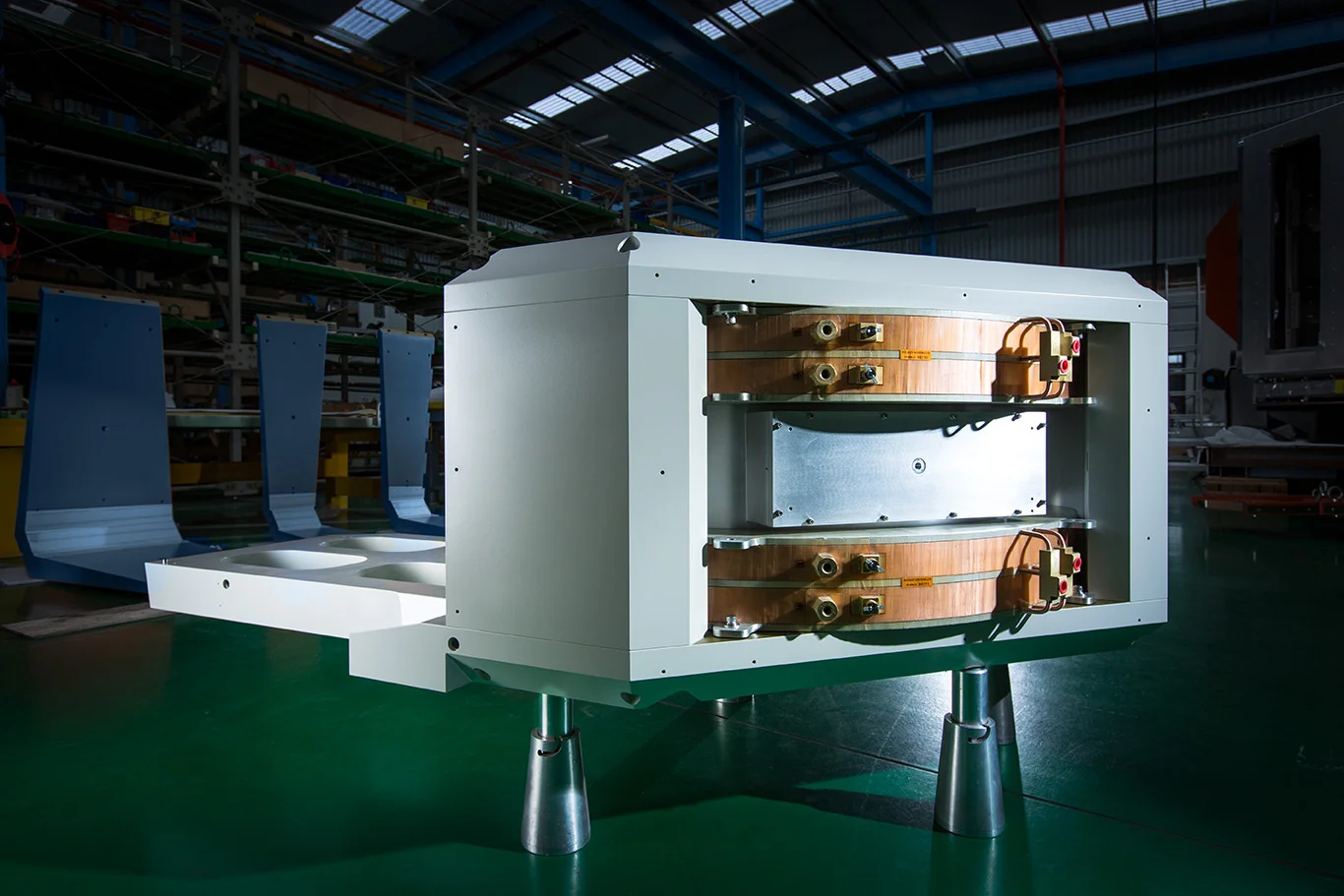Semiconductor
Semiconductor devices are utilised in computers, phones, and flat screen TV’s. In fact, more and more common products have semi-conductor devices embedded in them. A typical automobile now has the equivalent number of semiconductor devices as several personal computers. In order to create a semiconductor device we cannot simply use pure silicon as the basis of the device (or another semiconducting material), we must implant ions into the silicon in specific concentrations, and at specific depths, with specific ions. This is accomplished by ion implanter accelerators that are each comprised of typically a half-dozen high-precision exceedingly specialized magnets of the type manufactured by Buckley Systems Limited. The market for computer chips and other semiconductor devices is growing very rapidly at the present time, and thus, so is the market for the ion implanters that are used in the manufacture of these very same devices.
Medical
Accelerators for which Buckley Systems Limited provides high-precision electro-magnets, vacuum chambers, and ion sources are used in both medical diagnostic treatments, and medical therapeutic treatments.
Medical diagnostics undertaken in the nuclear medicine department of a hospital typically involve creating an image of the inside of a patient’s body so that a doctor can identify a problem such as the presence of a tumour, or the doctor can identify whether the tumour has responded to curative treatments by shrinking or disappearing altogether. Often a radioisotope tracer must be utilized to make such an image of the patient. A common radioactive tracer used for Positron Emission Tomography is called Fluorine-18. There are approximately ten manufacturers of accelerators called cyclotrons that are used to produce the Fluorine-18 tracers, and Buckley Systems Limited is a supplier of extremely high-tech equipment to several of them.
Medical therapy treatments for cancer can be undertaken by way of a particle accelerator. Charged particle beams can be accelerated and directed at a patients tumour in a very controlled manner for a specific amount of time. Often the patient is located some distance from the accelerator and a series of magnets and vacuum chambers are put together into what is known as a beamline to direct the charged particles to the tumour in the patient in order to destroy cancer cells, and minimize damage to healthy cells. The high-precision magnets with very specific and challenging magnetic field requirements are also manufactured at Buckley Systems Limited. Several different modes of treatment of cancer cells are utilized, for example: electrons, protons, carbon ions, gamma rays, and neutrons can all be used for treating cancer.
Research
At approximately two hundred National Laboratories such as CERN(Switzerland/France), DESY (Germany), ANL (USA), Brookhaven (USA), TRIUMF (Canada) or RIKEN (Japan), and approximately one thousand smaller facilities at Universities around the world there is discovery science undertaken using large (27 km circumference at CERN) accelerators, or very small accelerators that fit on a table top in certain university applications. Most of these particle accelerators require magnets, vacuum chambers, and RF structures that Buckley Systems Limited specialises in manufacturing. These accelerator facilities are undertaking experiments towards discoveries in areas of research like sub-atomic physics, cosmology, biology, chemistry, and materials sciences. Over the course of time many of the discoveries migrate into common usage (i.e. medical applications, or semiconductor applications noted above). In house design and manufacture of high precision ion optics and ultra-high vacuum systems for particle accelerators and beam transport systems.
Individual laboratory magnets and vacuum chambers to complete accelerator rings.
Ion source test facility for testing, verification or tuning and calibration.




